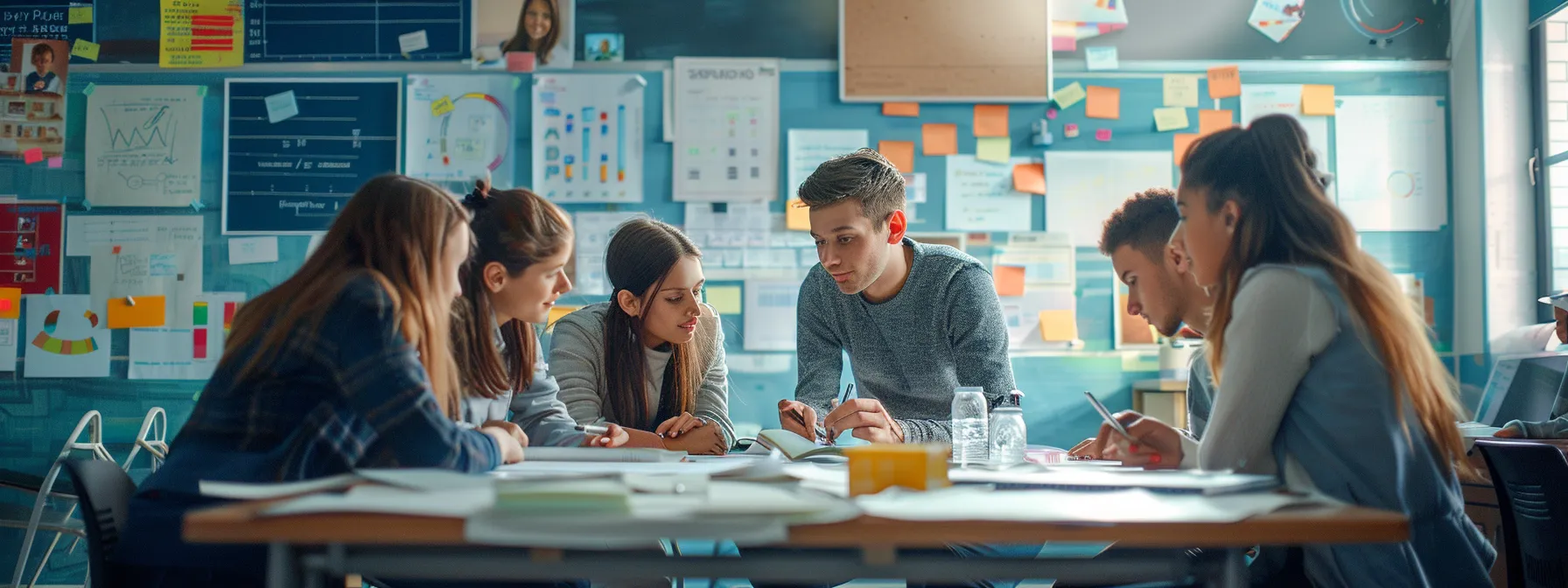The transition from high school to the adult world is a significant milestone in every young person’s life. With proper guidance and resources, students can be equipped to tackle the challenges that lie beyond the school gates. Cultivating essential skills, from financial literacy to emotional intelligence, plays a crucial role in shaping a well-rounded future. Programs that nurture career readiness, encourage higher education, and promote entrepreneurship can set the groundwork for success. Keep reading to discover the pillars of empowering high school students for life after graduation.
Preparing High School Students for the Workforce with Career Readiness Programs
Career readiness programs help high school students transition smoothly from education to the workforce by exposing them to different industries and essential soft skills. Through internships, vocational training, and career counseling, students gain real-world insights into job expectations and market demands. These experiences also help build communication skills and a strong work ethic, preparing students for future challenges.
Schools are increasingly collaborating with local businesses to offer mentorship, job shadowing, and workshops, giving students hands-on exposure. Programs like resume writing workshops and interview prep sessions also boost students’ confidence for job applications. With scholarships for high school students, these opportunities become even more accessible, setting them up for success in both careers and higher education.
Encouraging Entrepreneurial Skills for Future Independence
Entrepreneurial education is crucial for fostering independence and innovation among high school students. Schools can nurture these qualities through targeted curricula and extra-curricular programs. Start-up simulations provide students with hands-on understanding of business operations, financial planning, and market analysis. Competitions like business plan challenges and innovation fairs encourage critical thinking about societal needs and how to meet them through entrepreneurial ventures.
These dynamic learning experiences develop resilience, adaptability, leadership, and strategic thinking skills. Incorporating social entrepreneurship topics helps students recognize the impact of businesses on communities and the environment, promoting responsibility and driving a new generation of leaders to create ventures that contribute to the greater good. This empowers students to see themselves as agents of change, laying the foundation for a more innovative and industrious future.
Transitioning from High School to Higher Education: A Guide for Students
The transition from high school to college or university is a big step that requires more independence and preparation. Guidance counselors and college prep programs play a crucial role in helping students with the college application process, financial aid, and what to expect in higher education. These resources give students a clear path to follow, helping them navigate entrance exams, application essays, and choosing the right institution.
Picking the right major is another key decision. Students can explore options like a bachelor of public health degree or other specialized programs that align with their interests and career goals. For those not pursuing a four-year college, community colleges and trade schools provide affordable, flexible learning alternatives that support both personal and professional development.
Financial Literacy: Essential Skills for Young Adults Post-Graduation

Traditional education lacks financial literacy instruction, which is crucial for students’ financial stability as they enter adulthood. Schools should emphasize financial planning, teaching students about credit scores, loans, and interest rates. Hands-on experiences, such as managing a simulated stock portfolio or creating a monthly budget, can reinforce these principles.
Educating students about financial security and retirement planning can set them on a secure path. Resources like workshops and online apps can make financial learning engaging and accessible. Equipping students with financial skills prepares them for the world post-graduation, promoting autonomy and preparedness for the future.
Nurturing Emotional Intelligence and Mental Health Awareness
The education of young adults is crucial for personal and professional success, and schools should incorporate discussions on emotional intelligence and mental health into their curriculum. Recognizing and validating the pressures high school students face is the first step towards building a supportive environment.
Access to resources like counseling services, mental health days, and coping strategies helps normalize the conversation and educate students on seeking help when needed. Developing emotional intelligence involves understanding and managing one’s emotions and influencing others’ emotions. Schools contribute to a more empathetic, conscious community, fostering inclusivity and support in personal and professional circles.
Overall, the journey that high school students embark on towards adulthood is paved with challenges and opportunities. Preparing them through comprehensive education programs, support systems, and skills development is essential in ensuring they step into the future ready to succeed. By incorporating career readiness, entrepreneurial thinking, higher education guidance, financial literacy, and emotional intelligence into student education, we lay the groundwork for a generation of informed, capable, and compassionate adults.
